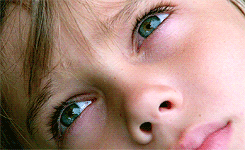About three days into my college orientation, one of our advisors (a sophomore who had the perhaps unenviable task of shepherding about fifteen of us into university life) suggested we make a run to Target to get any supplies we might need for our dorm rooms. This event sticks out in my memory because it marked a “moment of realization” that might be common for college freshmen, and young adults in general. Or it might not—I’ve never asked anybody. I have now lived more years since that evening than I had lived up to that point, so the moment may seem sort of pithy now.
![Kelly Martin (Own work) [GFDL (http://www.gnu.org/licenses/fdl.html) or CC BY-SA 3.0 (http://creativecommons.org/licenses/by-sa/3.0/deed.en)], via Wikimedia Commons Kelly Martin (Own work) [GFDL (http://www.gnu.org/licenses/fdl.html) or CC BY-SA 3.0 (http://creativecommons.org/licenses/by-sa/3.0/deed.en)], via Wikimedia Commons](http://crypticphilosopher.com/wp-content/uploads/2015/01/800px-Illinois_Target_Store.jpg)
Oh, the places we went! (Actual store we went to not pictured.)
I saw Boyhood in the theater about six months ago, and like most people, I was astonished by the ambition of the project and the story that it told. As you probably know, director Richard Linklater shot the movie a few weeks at a time over the course of twelve years, from 2002 to 2014. The movie follows the life of Mason (Ellar Coltrane) from elementary school to his first moments of college. The final scene of the movie is what really stuck in my mind, because it captured that feeling of possibility better than I could ever describe it with words. Spoilers ahead… Continue reading


